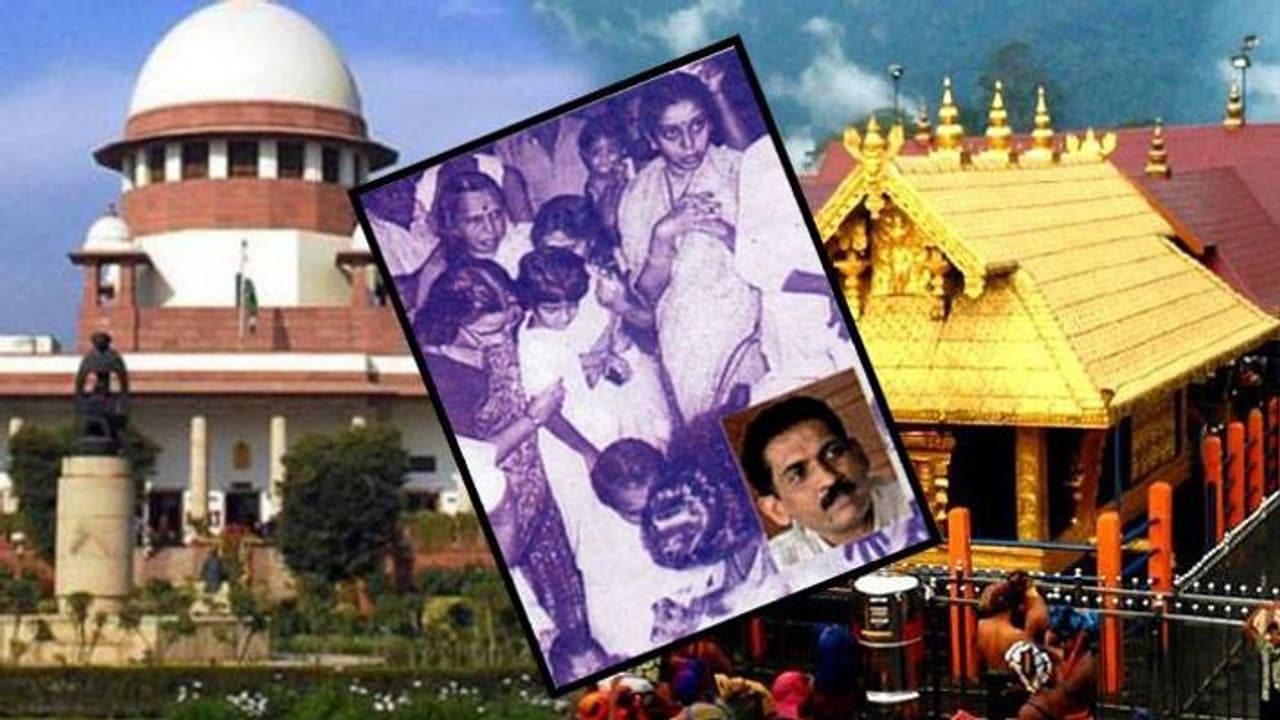The photograph was about a chorunu ceremony of the grand-daughter of the former Devaswom Board commissioner Chandrika
Pathanamthitta: The Supreme Court on Friday delivered a historic judgment in the Sabarimala temple case after a legal battle for nearly three decades.
The 28-year-old issue that got nationwide attention started with a photograph that was published in a newspaper in 1990.
The case reached the Supreme Court in 2006, and the verdict came on Friday after 12 years. The photo was about a chorunu ceremony (it is about newborns being fed with rice for the first time) of the granddaughter of the former Devaswom Board commissioner Chandrika at the Sabarimala temple in the presence of her daughter, the mother of the child.
Based on that photograph, Mahendran, a resident of Changanassery, sent a letter to the court on September 24, 1990 which was accepted as a public interest litigation.
In its verdict of April 5, 1991, the Kerala High Court said that the practice restricting the entry of women of a certain age group in Sabarimala was a matter of faith and, therefore, beyond the applicability of the Constitution.
Thottuvelil Krishna Pillai Ayappan Nair, who formerly served as principal secretary and later as an advisor to the then Prime Minister Manmohan Singh had also come up with a revelation over Sabarimala temple.
Nair said his chorunu ceremony was conducted in Sabarimala temple and his mother was also present there at the time. This incident happened in the 1940s, according to him.
Kannada actress-politician Jayamala had also claimed publicly that she had entered the Sabarimala temple in 1987 as a 28-year-old. Her statement led to the Kerala government probing the matter through its crime branch, but the case was later dropped.
Twelve years later, the Supreme Court on Friday granted entry of women of all ages into the Ayyappa temple at Sabarimala, Pathanamthitta in Kerala. Banning entry of women to the shrine is gender discrimination, said Chief Justice Dipak Misra.
